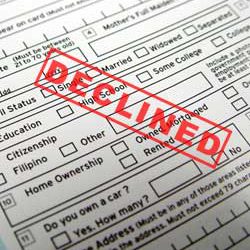Over the past few weeks, I have read and noted a number of blogs and other commentaries from respected economists and authors touting the growing concern about the student loan crisis as the outstanding balances on student loans approach the $1 trillion mark.
Many pundits have commented about the value of college education relative to its potential return of investment. Some have noted the strain it has caused, both emotionally and financially, on students who have obtained degrees in the “liberal arts” and have been forced to accept positions outside of their field of study at salary levels which may not even cover the servicing costs of ...
Read More...
7 Ways Deal with an Online Shopping Addiction
Many Americans have discovered the ease and convenience of shopping their favorite retailers online and it has led to a rise in online shopping addiction. For some people it is the thrill of shopping, and online shopping is an even faster way to satisfy their craving to shop. For others, it is a way to feel good about themselves or reward themselves. The consequences of the spending spree might not catch up with them for weeks or months, until they can't pay their credit card bill and finally discover just how much they have been spending.
So what can people do if they think that they have an online shopping addiction?
REVIEW: Review your ...
Read More...
12 Signs of a Compulsive Debtor
According to the Federal Reserve, the average credit card debt per American household is almost $16,000, with almost 610 million credit cards held by U.S. consumers in 2009. With each cardholder having an average of 3.5 credit cards, it is no surprise that chapters of Debtors Anonymous are popping up all over the country. Their 12-step program is patterned after Alcoholics Anonymous, and helps members recover from “compulsive debting” and lead happier, healthier lives.
According to Debtors Anonymous, the 12 signs of a compulsive debtor are:
Being unclear about your financial situation: Not knowing account balances, monthly expenses, loan ...
Read More...
10 Horrible Habits That Will Make a Mess of Your Finances
Many people that find themselves in debt seem to make some common financial mistakes that contribute to their debt problems. According to an article on MSN.com, there are ten bad financial habits that can lead to financial disaster:
Misuse of balance transfers - If you aren’t going to stop charging on your cards, transferring balances to lower interest cards won’t get you out of debt in the long run.
Disregarding your credit report because you think you can’t change it anyway - It is essential that you frequently check your credit report. Small errors made by your creditors could raise your interest rates, lower your credit score and ...
Read More...
Patterson Signs Bill Increasing Exemptions in Bankruptcy
Governor David A. Paterson announced on December 23, 2010 that he signed into law S.7034-A/A.8735-A, which will increase the amount of exemptions in bankruptcy proceedings and money judgments and provide a choice between State and Federal exemptions.
"During this time of economic crisis, it is our responsibility as public servants to protect those who are struggling the most," Governor Paterson said. "A reconsideration of the current exemptions, which in some cases have not been changed in decades, is particularly warranted when an increasing number of individuals find themselves in dire financial condition. Though this is not a perfect ...
Read More...
7 Tips to Help You to Modify Your Mortgage
Many homeowners are getting burned by reputable loan modification agencies and are being forced to file Chapter 13 bankruptcy to try and save their home from foreclosure. South Carolina attorney Dana Wilkinson gives seven tips to avoid this predicament when you are in the loan modification process in her recent article on BankruptcyLawNetwork.com. Here is a brief summary:
Keep a copy of EVERYTHING – Keep a separate file for any correspondence between you and your mortgage lender. If possible, keep notes of every conversation.
If it’s Not in Writing, Assume it isn’t True – Borrowers must have any important information regarding their loan ...
Read More...
5 Tips on Saving for a Down Payment on a Home
With tighter lending requirements the new standard, most new home purchases now require a 20% down payment. With an average home on Long Island costing $395,000*, a homebuyer would need to come up with a $79,000 down payment to secure a mortgage.
Find small ways to cut your expenses: Look for ways to cut your monthly expenditures and save the difference. Start clipping coupons for your food or lower your cell phone minutes if you don’t use them. Turn off all the lights when you aren’t using them. Start bringing lunch to work every day instead of eating out. Use coupon codes when shopping online. You’ll find these little things will add ...
Read More...
Lowest Rates in Decades? (5 Reasons Why Consumers are Being Turned Down for Home Loans)
Did that headline grab your attention? It seems to be grabbing attention across the country, but when homeowners apply for these rates to refinance their mortgages, they are being declined. What is going on? According to Jack M. Guttentag, The Mortgage Professor on Yahoo, millions of mortgages currently with rates of 6-9% or higher are being declined because of Fannie Mae and Freddie Mac, now in government conservatorships. They were too liberal in their lending for years and are now reacted to the aftermath by becoming excessively restrictive. As per Guttentag, these are the reasons consumers aren’t getting approved:
1. Credit Score Too ...
Read More...
Why Your Bills Should be a ‘Family Affair’
Do you take care of the family’s bills with your spouse? If you don’t, you may want to start. According to the NY Times, many spouses are being kept out of the family’s financial loop and this can often lead to marital problems down the road. It can also be problematic if the person handling the bills dies, becomes disabled or divorces. The remaining excluded spouse could be left managing the family’s money with no idea what kind of financial situation they are in, during an already difficult time.
Even if one spouse is writing a check for a bill, the other should certainly know how much that bill is costing the family each month. This is ...
Read More...




 What Makes Me Different From the Others?
What Makes Me Different From the Others?